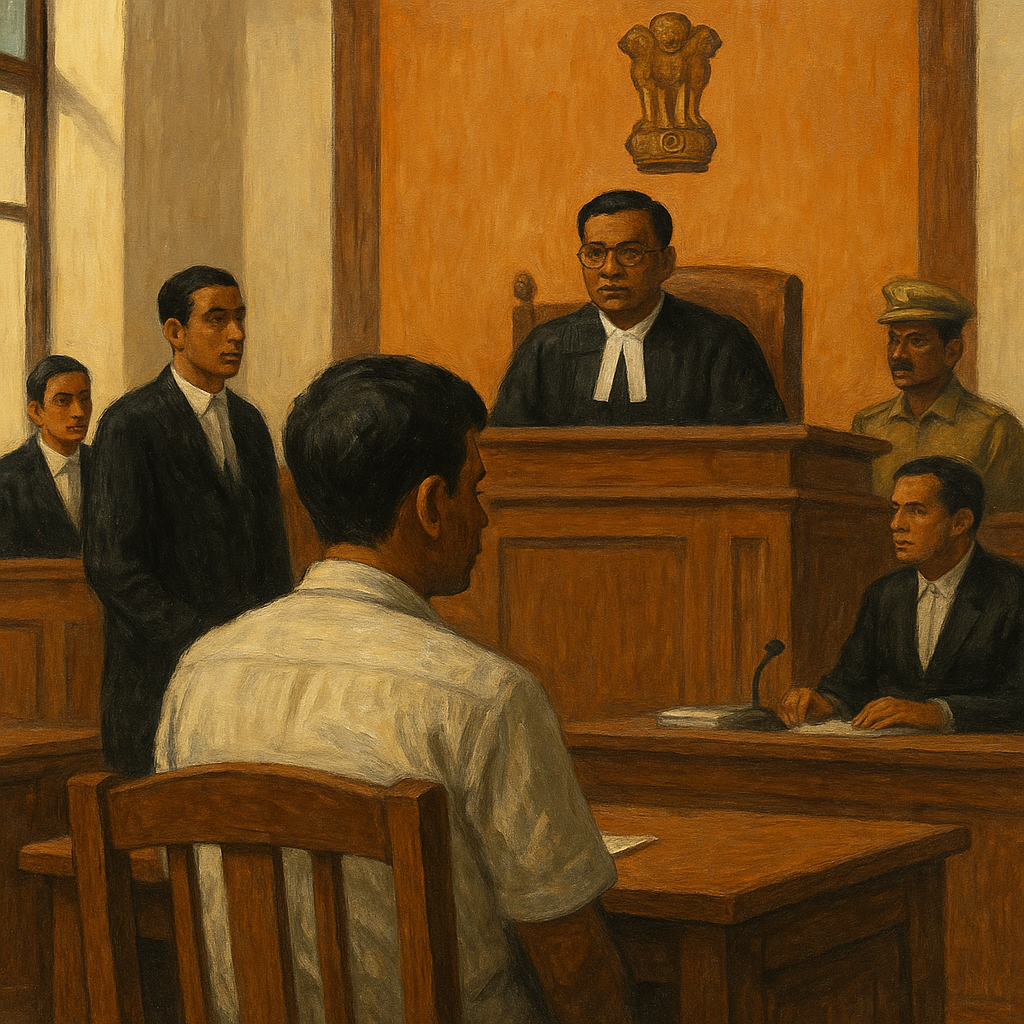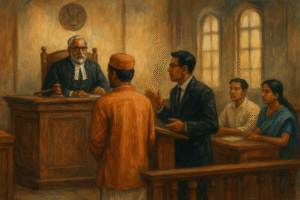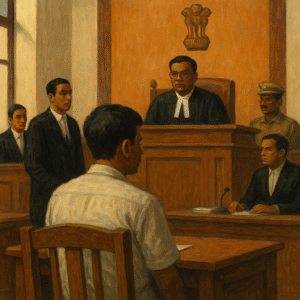The Patna High Court, in a 2021 oral judgment delivered by Hon’ble Mr. Justice Partha Sarthy, examined whether a hospital Patient Welfare Committee could deny further extension to a contractual “Dresser” by relying on a circular that dealt only with daily-wage engagements. The Court concluded that the non-extension order—grounded on the wrong circular—could not legally stand, set the order aside, and remanded the matter to the competent authorities to reconsider the aggrieved person’s case for contractual extension within a fixed time.
The case arose from a health facility in Lakhisarai district. The aggrieved person had been appointed as a Dresser on a one-year contract in August 2011. His contract was periodically extended until 2018. In September 2018, the Secretary of the local Patient Welfare Committee informed him that, in light of a State Health Society letter issued in April 2018, the Committee had decided not to extend his contract and to remove him with immediate effect. That administrative step prompted the writ petition.
Before the High Court, the central dispute was narrow but crucial: did the State Health Society’s letter from April 2018—which spoke about daily-wage engagements—apply to a person employed on a fixed-term contract? The petitioner argued that it did not, and therefore the Committee’s reliance on that letter to deny extension was legally flawed. The respondents, including the Patient Welfare Committee and the State Health Society, broadly submitted that since the contract had expired, the petitioner had no enforceable right to claim continuation.
The Court carefully assessed the tenor and scope of the April 2018 letter. It found that the document addressed daily-wage appointments and did not govern ongoing or renewed fixed-term contractual engagements like the one held by the petitioner. Because the Committee’s decision was explicitly anchored to that letter, the Court held that the very foundation of the non-extension order was unsustainable in law. Consequently, the memo dated 14 September 2018 was set aside.
Importantly, the Court did not order automatic reinstatement or grant a blanket direction to extend the contract. Instead, it balanced fairness with administrative discretion. The matter was remanded to the Civil Surgeon (who also chairs the District Health Society) and to the Secretary of the Patient Welfare Committee to re-examine the petitioner’s case for extension strictly on merits and take a fresh decision within three months from receipt of the order. This approach ensured that the authority best placed to evaluate service requirements would do so without being influenced by an inapplicable circular.
The judgment underscores a basic but often overlooked administrative law principle: when authorities rely on a policy or circular to make an adverse employment decision, the policy must apply to the factual category at hand. A daily-wage policy cannot be the basis for denying benefits or extension to a contractual employee whose engagement is governed by a different legal footing. The decision also highlights that, while contractual employees generally do not have a vested right to renewal after the term ends, they are entitled to fair, rational, and legally correct consideration. Where the reason for non-extension is demonstrably irrelevant or mistaken, courts can intervene to correct the process and compel a lawful reconsideration.
In practical terms, the ruling gives guidance to District Health Societies, Patient Welfare Committees, and similar bodies: decisions affecting contractual staff must be based on the correct policy instrument and on objective factors such as performance, need, budget, and service continuity. Equally, it provides clarity to contractual workers in Bihar’s public health system that, although they may not claim automatic continuance, they can insist that authorities follow the correct legal route and apply the right norms while deciding on extensions.
The facts also show that, around the relevant time, several other contractual workers reportedly received extensions for longer periods. While the Court did not convert that circumstance into a right to extension for the petitioner, it treated it as part of the background that warranted a fresh, unbiased look. By remanding the matter with a time-bound directive, the Court avoided both extremes—automatic renewal on one hand and an arbitrary, policy-misapplied refusal on the other—favoring a principled administrative re-decision.
Ultimately, the decision is an affirmation of fairness in public employment processes: even where posts are contractual and renewals discretionary, authorities must apply the correct policy framework and record cogent, relevant reasons. If their decision rests on a wrong premise, it is liable to be quashed and sent back for reconsideration.
Significance or Implication of the Judgment (For general public or government)
This decision matters for both the public administration and contractual employees:
- For government bodies (including District Health Societies and Patient Welfare Committees): It is a caution against “policy mismatch.” When deciding on extension or termination, authorities must verify that the circular or guideline invoked actually applies to the category (daily-wage vs. contractual vs. regular). Misapplication can result in judicial interference, delay, and administrative uncertainty.
- For contractual employees: The judgment clarifies that while there is no automatic, enforceable right to renewal after contract expiry, the process still has to be legal, rational, and grounded in the right policy. If the authority cites an inapplicable rule, the decision can be challenged and set aside, leading to a fresh, fair consideration.
- For the public health system: Stability of frontline support roles—such as Dressers—affects service delivery. Decisions on extensions must be made carefully to avoid avoidable disruptions in patient care, especially where performance is recorded as satisfactory.
- For governance standards: The case encourages better record-keeping and reasoned orders. Clear, category-specific justifications reduce litigation and improve trust in administrative decisions.
Legal Issue(s) Decided and the Court’s Decision with reasoning
- Whether a circular dealing with daily-wage engagements could be relied upon to deny extension to a contractual employee.
- Court’s Decision: No. The April 2018 letter concerned daily-wage appointments and had “no application whatsoever” to a fixed-term contractual engagement like the petitioner’s. Since the non-extension order was founded on this inapplicable circular, it could not be sustained and was set aside.
- Whether the Court should order continuation of contract or direct a fresh decision.
- Court’s Decision: The Court did not order automatic continuation. It remanded the matter to the Civil Surgeon (Chairman, District Health Society) and the Secretary, Patient Welfare Committee, to consider the case for extension on merits within three months. This preserved administrative discretion but ensured the decision would be taken under the correct legal framework.
- Whether the expiry of a contract alone defeats the writ claim.
- Court’s Reasoning: While the petitioner had no vested right to renewal, the decision-making process must still be lawful. The authority having relied on an inapplicable circular, judicial correction was warranted, followed by a remand for a fresh, timely determination.
Case Title
Uday Kumar v. State of Bihar & Ors.
Case Number
Civil Writ Jurisdiction Case No. 20523 of 2018
Citation(s)
2021(1)PLJR 744
Coram and Names of Judges
Hon’ble Mr. Justice Partha Sarthy
Names of Advocates and who they appeared for
- For the petitioner: Mr. Prashant Sinha, Advocate; Mr. Babua Jha, Advocate
- For the respondents (State/Authorities): Mr. S.D. Sanjay, Advocate
- For Respondent No. 3: Mr. K.K. Sinha, Advocate
- For State Health Society: Mr. Shashi Shekhar, Advocate
Link to Judgment
MTUjMjA1MjMjMjAxOCMxI04=-qcBnx8qMdIo=
If you found this explanation helpful and wish to stay informed about how legal developments may affect your rights in Bihar, you may consider following Samvida Law Associates for more updates.







